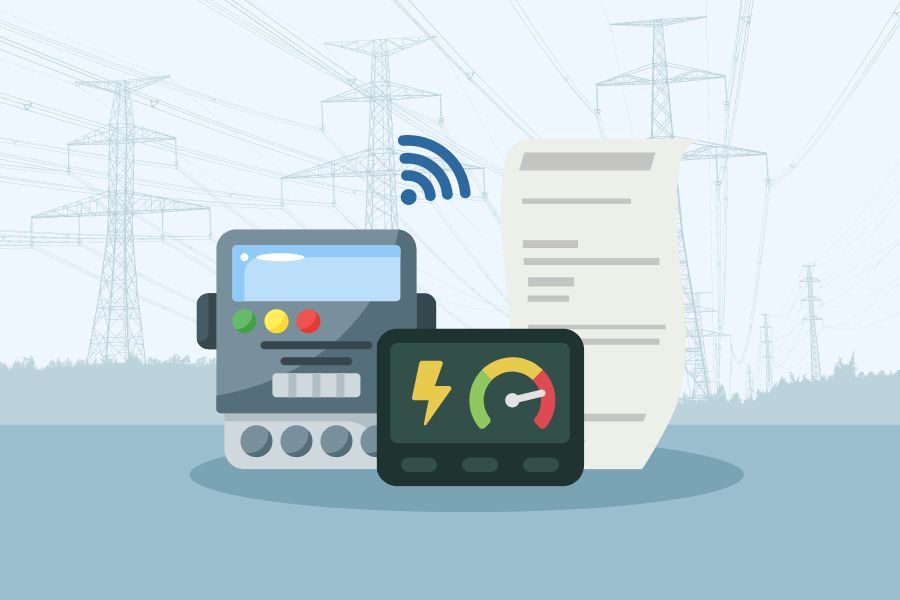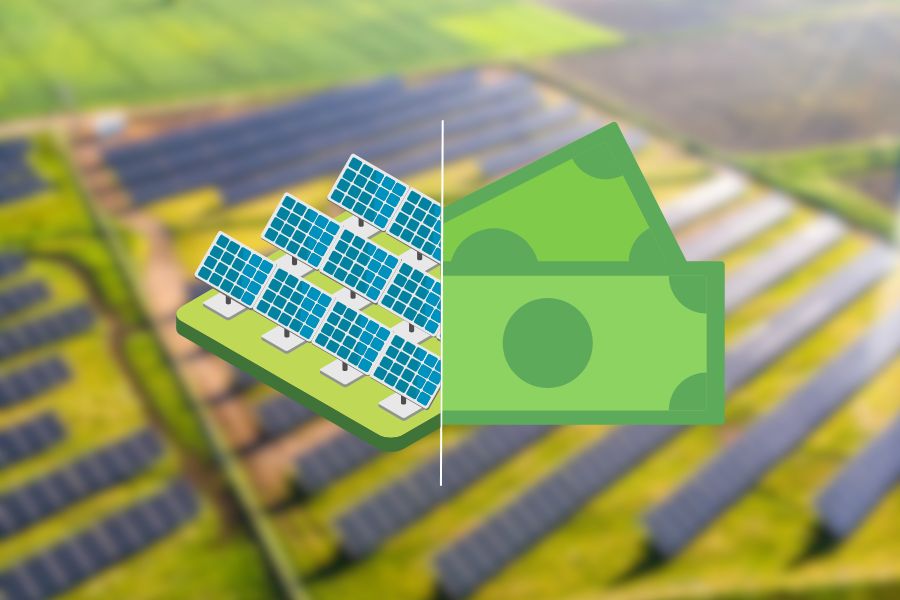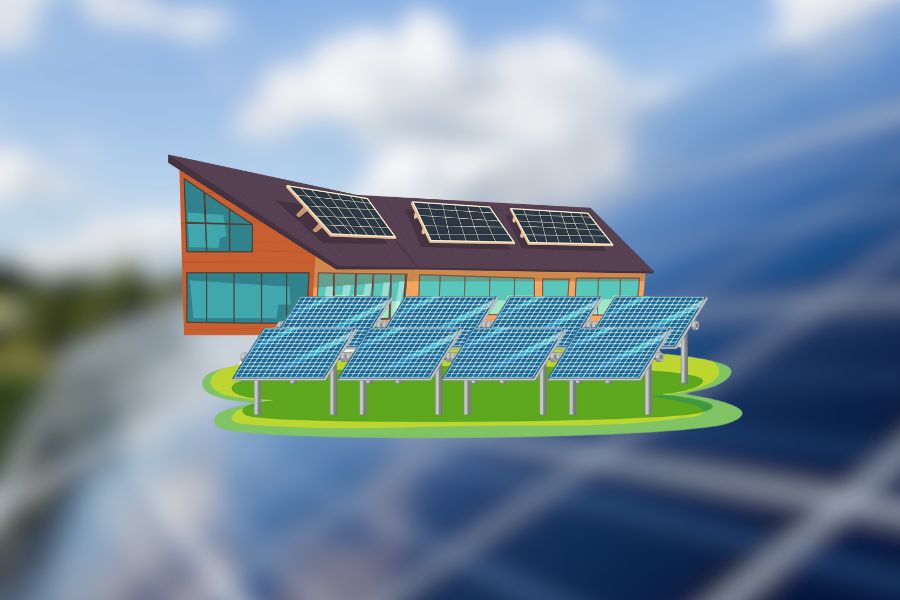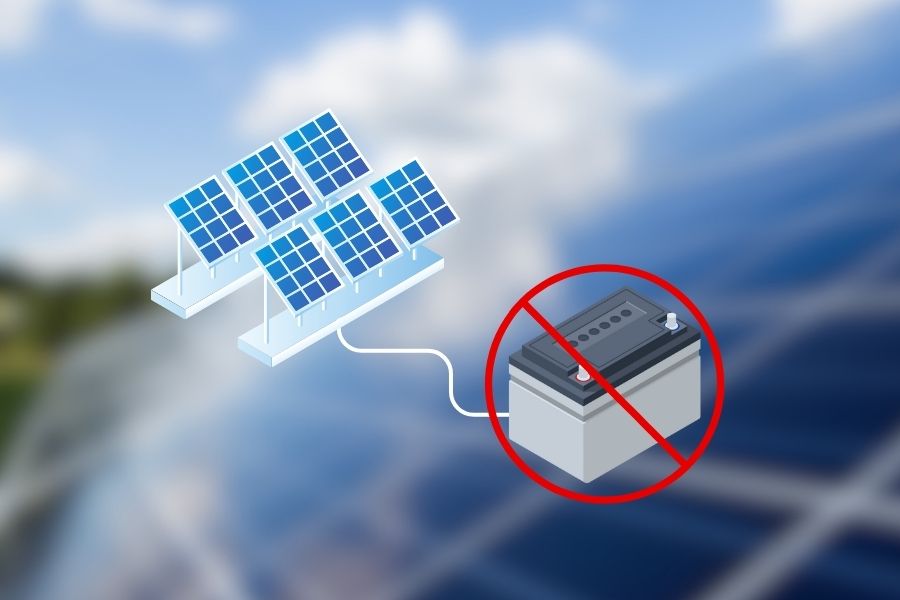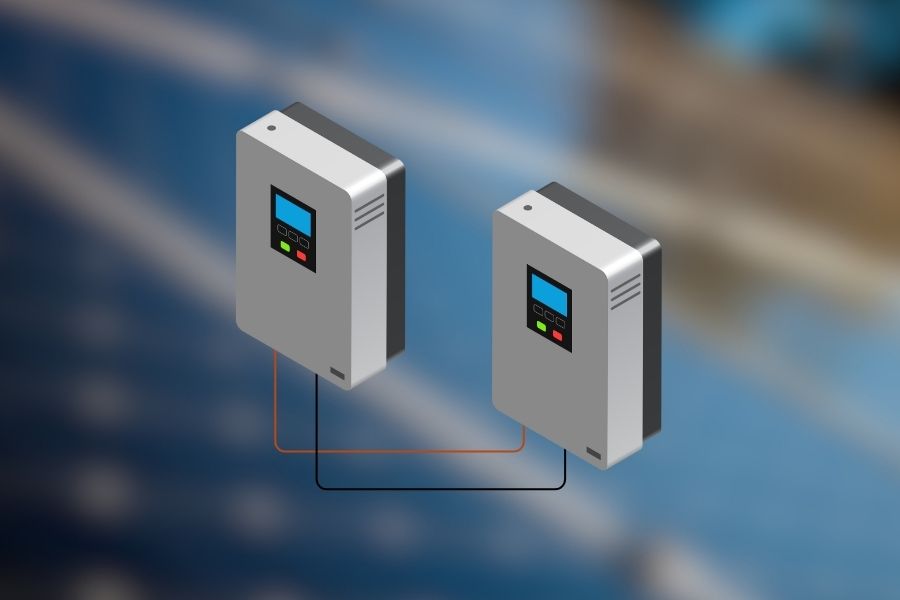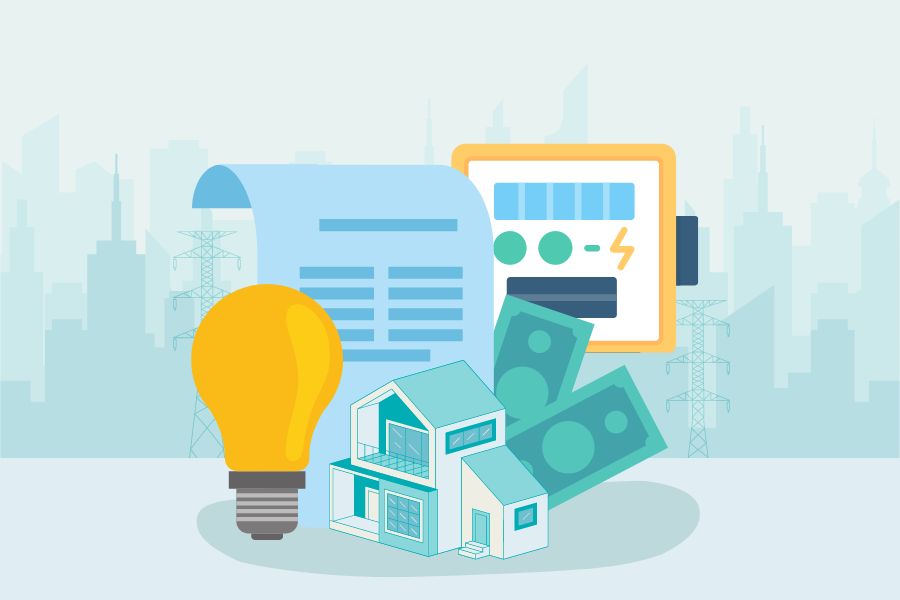Understanding smart meters, their operation, advantages, potential hurdles, and their role in Ireland’s energy future is vital in our ever-evolving digital age.
Smart meters enable efficient energy consumption monitoring and management and promise cost savings and ecological benefits.
Despite the government’s plans for a nationwide rollout to improve energy efficiency and provide accurate billing, concerns around data protection, privacy, and public perception linger.
Understanding Smart Meters in Ireland
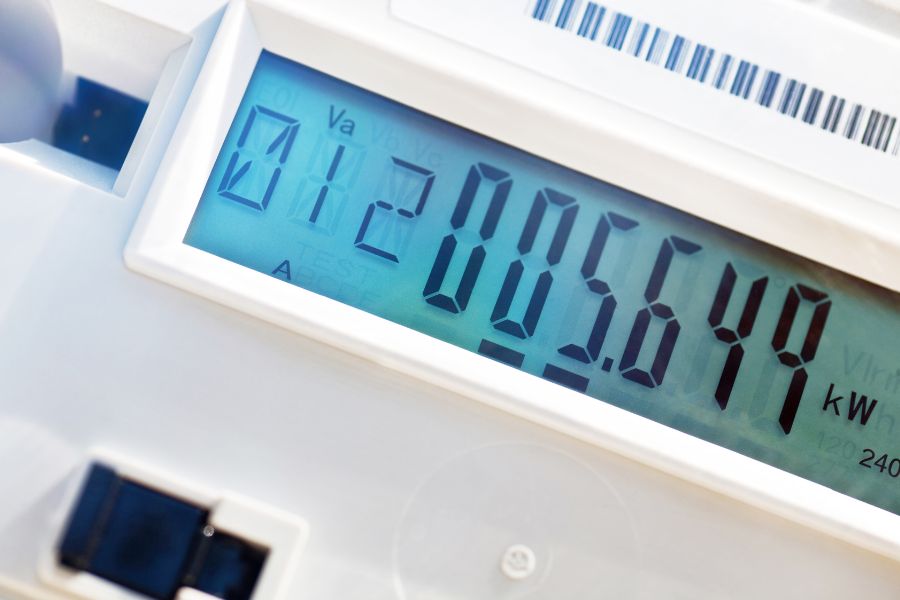
Smart Meters digitally monitor and record gas and electricity usage in homes and businesses. They replace traditional meters that require manual readings, providing a more accurate and efficient way to manage energy consumption.
Smart Meters measure energy and automatically send this information to the energy supplier. Customers no longer need to provide manual meter readings or receive estimated bills, as their energy consumption tracking happens in real time.
There are two types of Smart Meters in Ireland: electricity and gas. Electricity meters measure the electricity used in a property, while gas meters track natural gas consumption.
Smart Meters use wireless communication technology to send data to the electricity supplier. Smart Meters securely transmit and store data; only authorized parties can access it. The technology used in Smart Meters prioritizes safety and reliability, with strict regulations in place to protect customer data and privacy.
How Smart Meters Work in Ireland
After Ireland committed to the Paris Agreement in 2015, the Commission for Regulation of Utilities (CRU) announced in 2017 that it would deploy smart meters in Ireland as part of its pledge to the National Climate Action Plan.
However, some people tested smart meters in households across Ireland before the rollout. Results indicated that homes with smart meters saw an average decrease in electricity consumption of 3% and an 8% reduction during peak hours.
The smart meter rollout program, worth €1.1 billion, was launched in 2019 and assigned to ESB Networks, Ireland’s National Electricity Distributor, to install smart meters.
Benefits of Smart Meters in Ireland
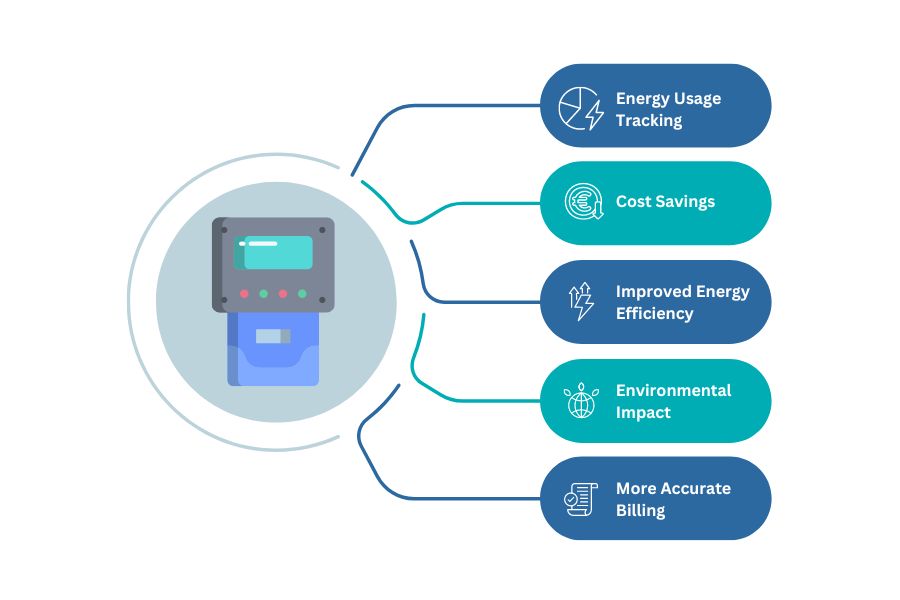
Smart Meters offer a range of benefits to both energy suppliers and customers in Ireland. Here are the top benefits of Smart Meters:
1. Energy Usage Tracking
Smart Meters allow you to track energy usage in real time, giving you more control over your electricity usage. In other words, by monitoring energy usage, customers can identify ways to reduce consumption and save money on their bills with a smart tariff. Smart meters can offer more accurate and detailed data on your consumption, helping you understand your commercial electricity rates in Ireland.
2. Cost Savings
Smart Meters can help save money on your energy bills by providing accurate readings and eliminating estimated bills. You only pay for energy, leading to cost savings over time.
Additionally, energy suppliers in Ireland offer different tariffs for customers with Smart Meters, which can result in further cost savings—this smart meter tariff often lowers rates during off-peak times or for customers who use energy more efficiently.
3. Improved Energy Efficiency
Depending on electricity usage in a home, smart meters promote energy efficiency by giving you real-time feedback on your energy usage. Smart meters allow homeowners to gain precise insights into how many kWh their house uses in Ireland. It will encourage you to change your energy consumption habits, reducing waste and promoting sustainability.
4. Environmental Impact
Having a Smart Meter installed is a crucial tool in the fight against climate change, as they promote energy efficiency and reduce carbon emissions. Furthermore, Smart Meters help minimize energy consumption’s environmental impact by reducing energy waste.
5. More Accurate Billing
Smart Meters eliminate the need for estimated billing, providing accurate bills based on energy usage. It improves billing accuracy and stops the need to submit meter readings manually. With the help of smart meters, users can effectively track how much a unit of electricity costs in Ireland.
Challenges Facing Smart Meters in Ireland
While Smart Meters offer many benefits, some challenges face implementation in Ireland. Here are the top challenges:
1. Data Protection and Privacy Concerns
The use of Smart Meters raises concerns about protecting customer data and privacy. There are strict regulations to protect customer data in Ireland, but some people are still wary of the potential for data breaches.
2. Technical Issues
The rollout of Smart Meters in Ireland has faced some technical challenges, including issues with compatibility between different meters and communication technologies. It has led to delays in the rollout in some areas.
3. Health Concerns
Some people have raised concerns about the potential health risks associated with the electromagnetic radiation emitted by an electricity meter. However, there is no scientific evidence to support these concerns.
4. Funding Challenges
The rollout of Smart Meters requires significant investment from energy suppliers and the government. Funding challenges and high energy costs have led to delays in the rollout in some areas.
5. Public Perception
Some people are skeptical of the benefits of a new Smart Meter and resist having them installed in their homes. It has led to a slower rollout in some areas as energy suppliers work to address public concerns.
In addition to these challenges, there are concerns about a Smart Meter’s accuracy, particularly in comparison to traditional meters that use estimated meter readings. However, Smart Meters are more accurate than estimated readings, as they provide real-time data on energy usage.
Smart Meter Rollout in Ireland
In Ireland, a nationwide rollout of smart meters began in 2019 to replace all existing electricity meters with smart meters by 2024. The Commission is leading the rollout of the Regulation of Utilities (CRU), the independent regulator for Ireland’s electricity and gas sectors.
The rollout of smart meters in Ireland is happening in phases. The first phase focuses on households using more than 4,000 kWh of electricity annually. The second phase, which covers homes using less than 4,000 kWh per year, is scheduled to begin in 2022 and finish by the end of 2024.
As part of the rollout, customers will receive information about the benefits of smart meters and how to use them effectively. They can also access an online portal providing detailed information about their energy usage and tips on reducing their energy consumption and saving money.
The Smart Meter Rollout in Ireland aims to empower customers to understand better and manage their energy usage, reduce their carbon footprint, and contribute to a more sustainable future.
Smart Meter Installation Process in Ireland
To install a smart meter by ESB, you can contact your energy supplier or the distributor directly. One can reach ESB Network at 1800 928 123 or 01 698 5005, and they are responsible for managing the smart meter installation process in Ireland. Remember that the meter exchange will require a power outage lasting up to 45 minutes.
We recommend you watch this YouTube video to help you understand how to read your ESB smart meter:
Smart Meter and Energy Suppliers In Ireland
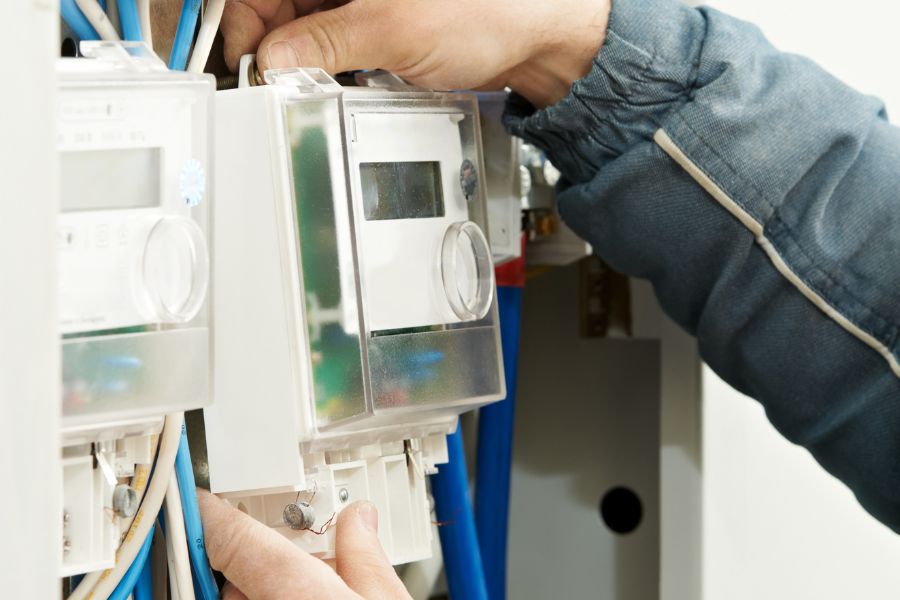
The Commission for Regulation of Utilities (CRU) and ESB Networks manage the deployment of smart meters in Ireland. The smart meter installation process is currently underway. You should contact your energy supplier to schedule an appointment to install a smart meter.
Furthermore, many energy suppliers in Ireland support the rollout of smart meters by offering various benefits to customers with a smart meter installed.
For example, some suppliers offer real-time energy usage information to help customers manage their energy consumption. In contrast, others provide access to online portals that allow customers to monitor their energy usage and receive personalized energy-saving advice.
The CRU has mandated that all electricity suppliers in Ireland must have their customers’ smart meters installed by 2024. Contact your energy supplier to find out about the smart meter rollout in your area and schedule an appointment to install a smart meter.
Smart Meter and the Future of Energy In Ireland
The deployment of smart meters in Ireland is an essential step toward the future of energy in the country. Smart meters empower customers to reduce energy consumption and carbon footprint by providing real-time usage information.
In addition, smart meters alongside solar energy in Ireland also enable a more efficient and flexible energy system, critical for integrating renewable energy sources such as wind and solar power. With smart meters, energy suppliers can manage the grid more effectively, reducing the need for costly upgrades to the energy infrastructure.
The smart meter rollout in Ireland is part of the National Climate Action Plan, which aims to make Ireland a leader in climate action and reduce the country’s carbon emissions.
Deploying smart meters will play a significant role in achieving this goal. Experts estimate the rollout could reduce 2.6 million tonnes of CO2 emissions by 2030. Smart meters are also integral to calculating your returns from the feed-in tariff in Ireland, as they measure the amount of solar electricity fed back into the grid.
Frequently Asked Questions
Is There a Cost for Getting a Smart Meter in Ireland?
There is no cost for getting a smart meter in Ireland, as it is part of the national rollout program.
Do Smart Tariffs Cost More?
Smart tariffs may cost more or less depending on usage and supplier, but they are optional and not mandatory with smart meters.
Are Smart Meters Compulsory in Ireland?
No, it is your legal right to decline the installation of a smart meter if you choose not to have your current meter upgraded.
Can I Opt Out of an ESB Smart Meter Installation?
Yes, you can opt out of an ESB smart meter installation. We recommend you contact ESB Networks to let them know.
Conclusion
Smart Meters in Ireland are here to stay, bringing with them a world of benefits and exciting opportunities for energy management.
While there may be some challenges, we can look forward to a more innovative and sustainable energy future.
So let’s all get on board with the Smart Meter revolution and power up towards a brighter tomorrow!
